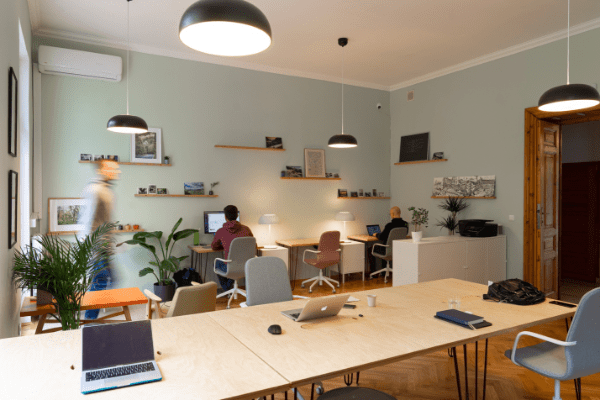As we embrace a world where many want a happy balance between the flexibility of working from home and the sense of community in the office, coworking spaces are on the rise throughout Europe. People are seeking flexible, affordable options that provide more work-adjacent amenities than a neighbourhood cafe. By the end of 2024, it’s projected that there will be 41,975 coworking spaces globally. In Europe, where there are 6,850 coworking spaces, the expected annual growth rate is 4.7% – meaning competition is stiff, and much needs to be done to differentiate your business. You may have a beautiful space and a prime location, but if prospective customers haven’t seen your space yet, search engine optimisation is your primary driver for awareness. Here are 5 ways to make your coworking pace more visible on search engines and help your business stand out.
Localise your content strategy
When people search for coworking spaces, they usually include their location in the search term. As such, optimise your web pages to reflect keywords indicative that your business is in the area. This may mean referencing specific streets, landmarks, or nearby businesses. Conduct research to find the most effective words and phrases to integrate into your homepage, main navigation pages, and other elements. Maximise specific keywords, such as the type of space you offer as well: Is it a flexible office or a warehouse coworking space? This will attract those in your area and assure them you are nearby.
Bid on competitor ads
Competitor bidding is when companies directly use their competitors’ brand names to target a qualified audience who, in this case, is already in the market for coworking spaces. By bidding on competitor ads and their keywords, you can show an ad for your coworking space when potential customers are searching for a competitor. However, choosing competitors wisely based on their search volume and your budget would be best. You also want to take special care with messaging and consider how your bids may look to potential customers. Mindful execution is critical.
Update your website regularly
It’s essential to view your site like a network of interconnected parts and ensure each website page reflects updated and accurate information, particularly your home, locations, or contact-us pages. You don’t want customers getting frustrated with 404 links or phone numbers that are no longer in service. This accuracy should extend to blog posts and other pages so that you can rank better. For consistency, assign a point person on your team to be in charge of updates at a specific time of the month or year.
Gain backlinks
Backlinks are links to your content from other websites that search engines consider an authority, elevating your website’s authority. Think about the different products or services that your customer base may want. For instance, those who work from home likely have their own coffee machines, are interested in ergonomic desks and seating, or are in the market for blue light-blocking glasses. You can contact these high-domain websites to see if getting backlinks is possible. Still, they will usually want to ensure your website is high-quality and uploads new content often, as mentioned above, so do your best with the content you have.
Improve website loading speed
One in two customers leaves a website if it takes more than six seconds to load. To keep your website from driving people away, you can improve site load time by optimising images, reducing code, and getting the assistance of third-party services for key website functions such as your booking availability feature.
Over a third of UK workers would quit if asked to go back into the office full-time, affirming continued demand for coworking spaces. With consistency, modifications, and key collaborations for your website, your co-working space will rise in the ranks of search engines in no time.
Article written by Jill Rupert.
Exclusively for happyworkinglab.com
Featured image: Unsplash.
